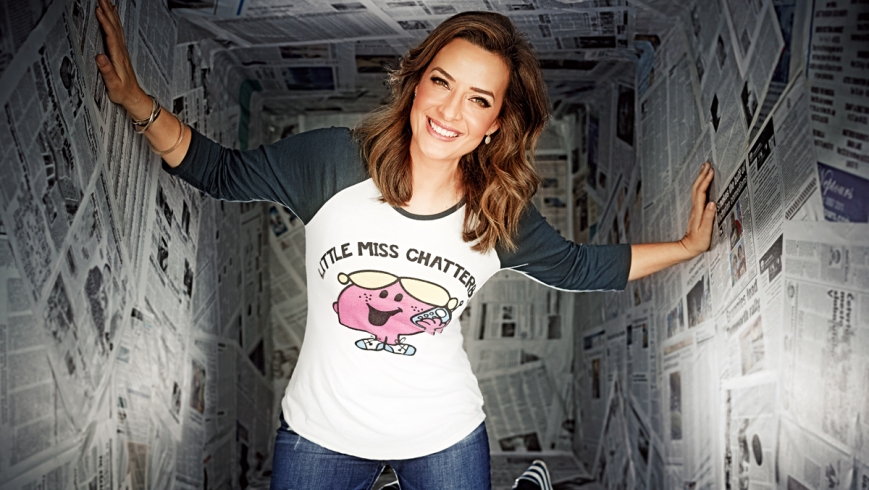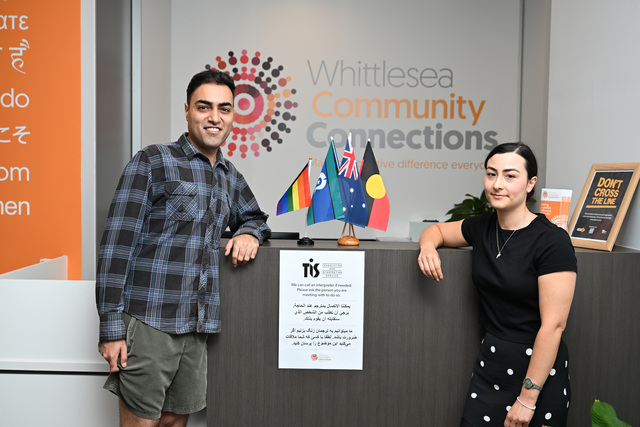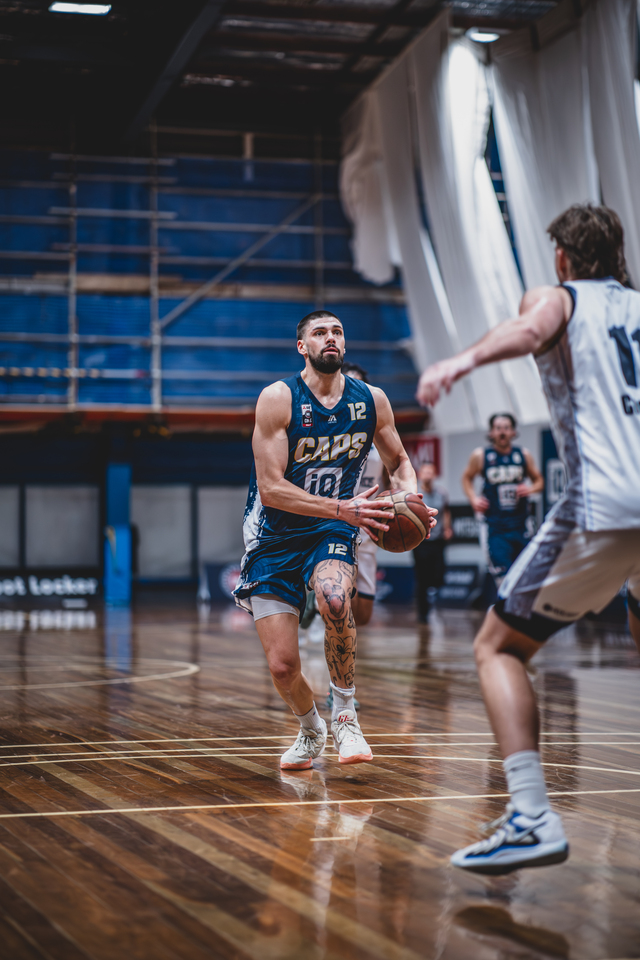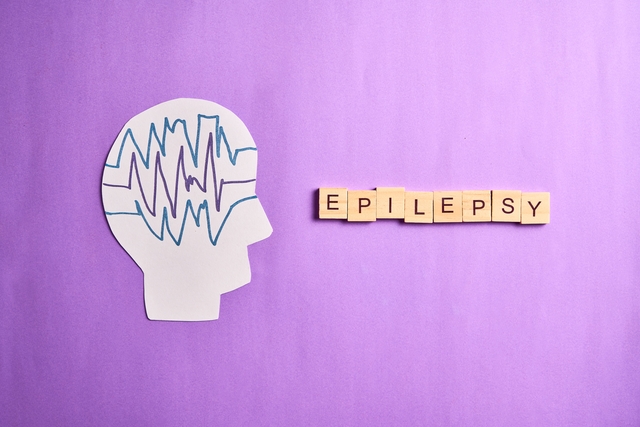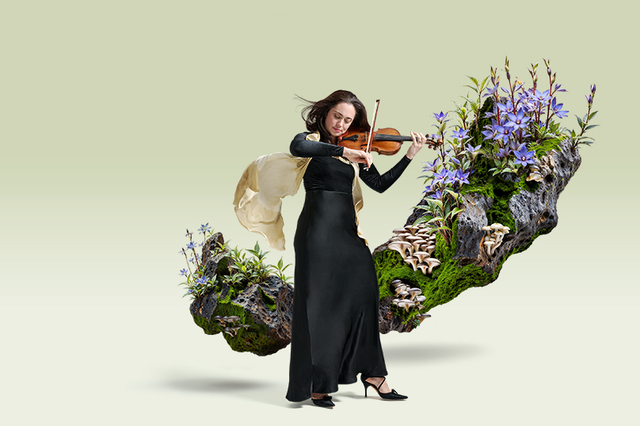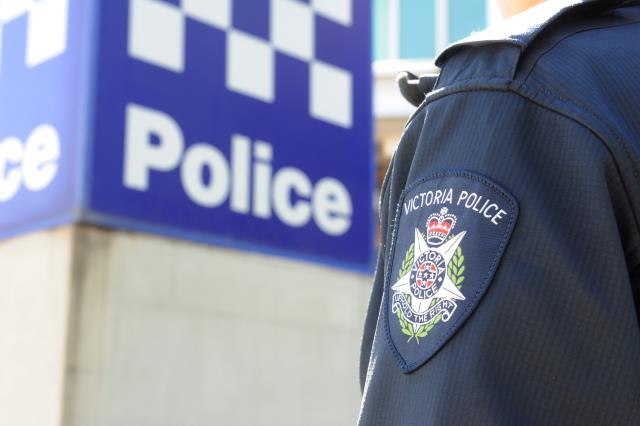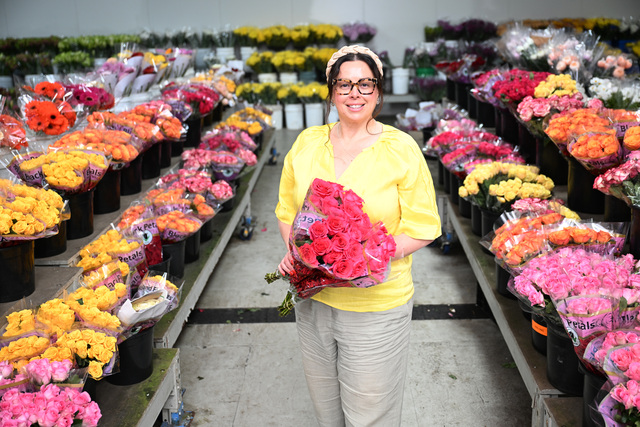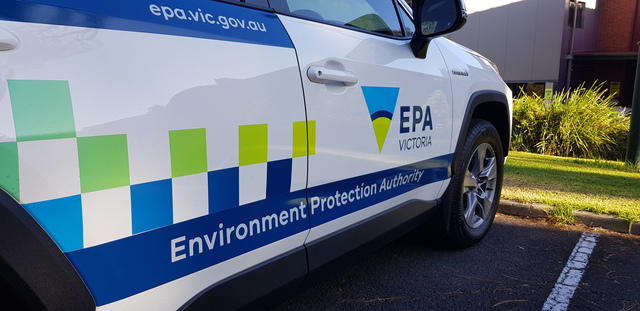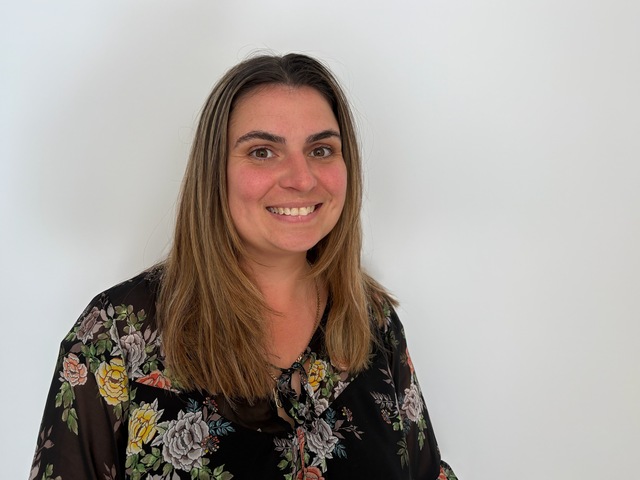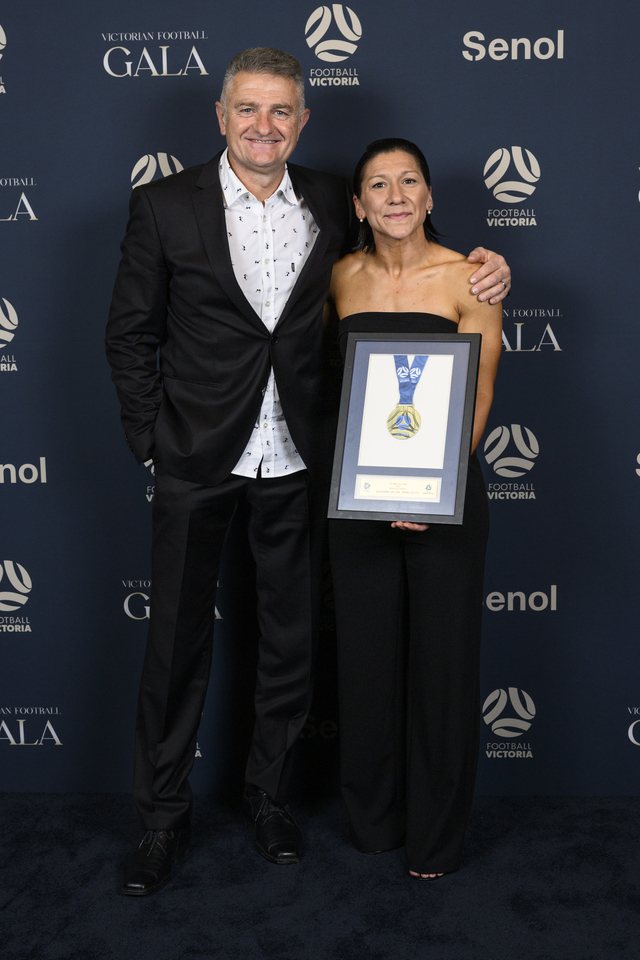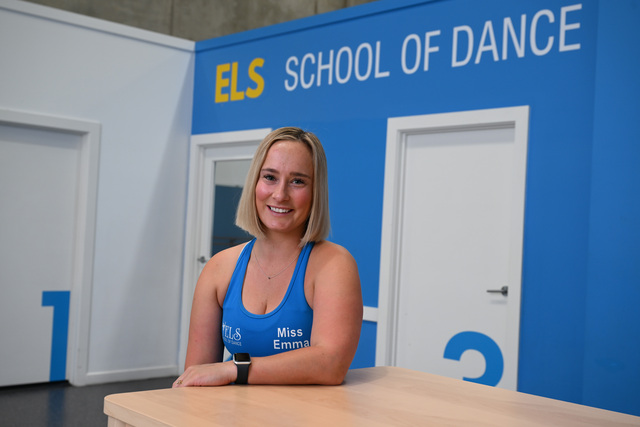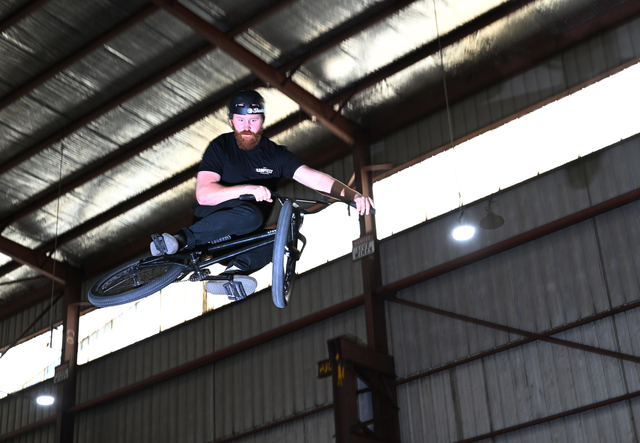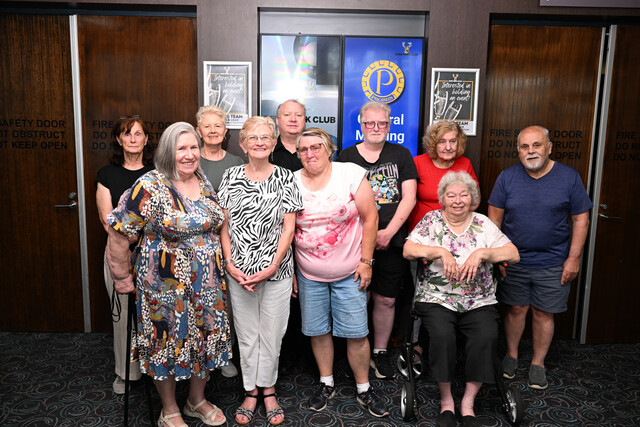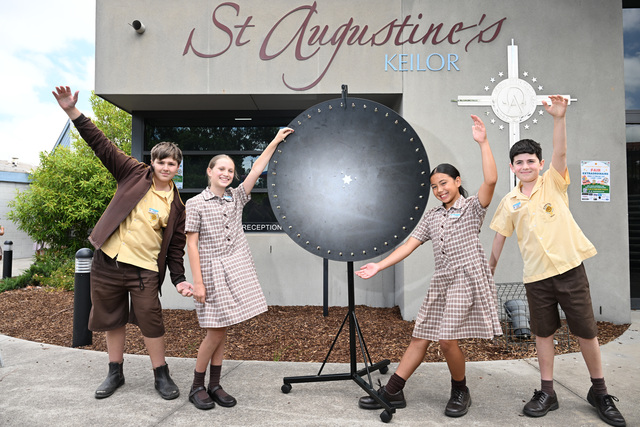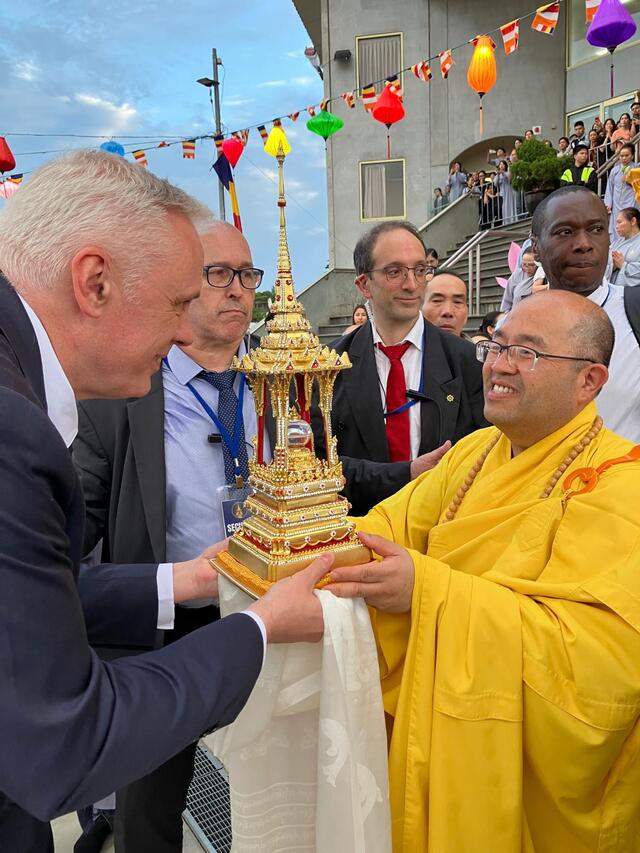Sometimes perspective is a powerful thing. On the same day in June last year that Helen Kapalos read the headline on a media website: “Helen Kapalos suffers unfortunate ‘on-screen death’ ”, she was diagnosed with an ovarian tumour. At the time she didn’t know if it was benign or malignant or whether other organs would need to be removed.
A few weeks later surgeons removed the tumour – benign, as it turned out – from her right ovary. The trauma had added poignancy given her mother Joanna had died of cancer aged 56 after benign fibroids on her uterus had turned into malignant, inoperable cancer.
“It was painful for the family to revisit that,” Kapalos says of her own diagnosis (she was soon given a clean bill of health). “The same day I was diagnosed was the day the on-air thing happened. I very much placed that in perspective.”
For those who missed it, “the on-air thing”, which had media commentators around the country baying in glee, involved a night hosting Channel Seven’s Today Tonight during which the autocue failed and Kapalos was left stumbling and throwing to stories that never appeared.
Television current affairs is a brutal medium in which to make mistakes. “At the time I did my best to navigate through it,” she says. “There was not a lot of communication on the other end for me [that night]. It was a great learning exercise for all of us. I didn’t take it that personally. I just thought ‘These things happen’.”
When I meet Kapalos, 43, in a Prahran café, she’s happy to talk about the good and the not-so-good experiences of the past few years. While her “on-screen death”, and the media excitement that followed, might have been humiliating, it was insignificant compared to the prospect she may have ovarian cancer.
Kapalos’ first specialist suggested she have an ovary removed, but the second specialist she saw disagreed. “It shocks in a lot of ways because it could have been an entirely different outcome,” Kapalos says. “One of the outcomes might have been early menopause, for example. It would have [meant] far bigger irregularities in my body now to overcome. So I was really lucky. Again, it was an intuitive sense – to follow a different path because I just thought, ‘That sounds a bit rough’.
“[The first specialist] was a cancer specialist so I felt she had that thing, ‘Let’s just take everything out and be preventative’. But it felt like it was too invasive for me.”
For eight years Kapalos has been an ambassador for the Ovarian Cancer Research Foundation. She stresses the importance of getting a second opinion. “The message is: be vigilant. No one knows how to heal you better than yourself; no one knows what’s happening with your body better than you,” she says.
“Having that time of peace to understand what’s happening with your body and what your body’s needs are … I think we just don’t bow out of the everyday, 24/7 distractions enough to really get that grounded sense of who we are. I think it’s so important.
“Women think they’ve got to be superwoman-plus, successful in 100 different realms. We’re too busy to know what our bodies are saying. We don’t take time out for ourselves. So we strive towards what someone else’s notion of success should be and not our own.”
Kapalos has had to become accustomed to the ups and downs that come with a media profile. She says the Sydney media, in particular, often referred to her Today Tonight incident and the online trolls found a target.
“It was brought up again and again,” she says. “TT attracted that kind of scrutiny and in a lot of ways you’re a sitting duck, a good target. So that was primarily why I decided to withdraw from Twitter because this one role [was] not a total reflection of who I am, there are other things that I do outside of this … and I found I was being attacked for particular stories on TT.
“[The thing is] not to take them on board and again, just remember who you are. Everyone’s subject to it. In a way it’s a liberating thing because it shows great power in not taking on board the opinions of other people. I always think, ‘Return to sender’ … That hatefulness doesn’t live in my life.”
It’s been a difficult few years for Kapalos. Her sacking by Channel Ten in November 2012 as a co-newsreader with Mal Walden, after the network chose to go with a sole newsreader, received a lot of press coverage and an outpouring of public outrage and sympathy.
“I was really stunned and surprised at the attention. They knew I was going overseas the next day to see my dad and I gather they thought I was just going to slip under the radar.
“I had sent a tweet out the night before saying that I was going on holidays. I was blissfully unaware that this was about to occur. I think it probably got attention when I then sent out one saying, ‘Fall down seven times, get up eight’. Word got round. People were in the lift, they saw me visibly upset.
“And then to my great surprise a reporter from The Age contacted me as I was literally about to board a plane. I couldn’t comment to him at the time, I was just in deep, deep shock.”
She took a philosophical view. “ ‘Seven times fall down, eight times get up’. It’s funny, I had that on my desk at Ten. You fall down, but it’s when you get up, that’s when you’re living.”
What did Kapalos learn from the experience?
“I’ve become comfortable with being uncomfortable,” she says. “I’ve become comfortable with the unknown, comfortable with the fact that life will present challenges. I have always been someone who’s wanted to go through the eye of the storm.”
Kapalos says the best thing she could have done after the Ten sacking was to face the fears and challenges that the situation represented, and look forward rather than dwelling on the past.
“I learnt a lot about myself,” she says. “I learnt that I was more resilient than I thought. I also learnt, in that moment of crisis, it’s a bit of a death but it’s also life as well and it’s transformation.
“It was a real sense of, ‘If you know who you are, everything will be OK’. I realised in that moment [of her sacking] that work didn’t define me, only I can define me. Surrendering fear, all those emotions that come at a time like that, was the only way to look forward.
“You get a really strong sense of self when you can survive something like that, come through it and know who you are.
“It’s taught me a great lesson. One of my nicknames has been Hurricane Helen, and I think it’s this thing that I love life so much that I want to be into everything. But it’s also taught me since then to be able to pull back, to be able to rest, to be able to strive for balance as much as possible.”
Soon after Kapalos left Ten she was approached by Seven’s news chief Peter Meakin. “He said, ‘What’s your personal nirvana in terms of working here?’ I said, ‘If there’s one show that really aligns with my purpose and my goals it’s Sunday Night’.
“I said, ‘Look I want to go back to my first love, which is reporting. Long-form storytelling is what I’ve always done’. It’s really funny the clarity you get around a moment like that.”
First, though, she spent a year at Today Tonight. “To be honest it took me a while to settle into a genre I was unfamiliar with,” she says. “Some aspects of it I loved, [some] I didn’t love … perhaps in retrospect it’s been a stepping stone to my real goals.”
After that year at TT Kapalos quit, one month before the program was replaced (in February this year) by a one-hour news service in Melbourne, Sydney and Brisbane. She joined the network’s more serious current-affairs program Sunday Night.
Kapalos grew up in Newcastle on the New South Wales central coast with a strong Greek heritage. She didn’t speak English until she was five. “I was a bit of a tomboy,” she says. “I was always interested in all sports, so I was a bike-riding little girl with pigtails. Adventurous.”
Her journalism career started at ABC radio when she was 22. She later worked at SBS and Nine (on news and A Current Affair).
Aged 22 she married Craig Boettcher, a physiotherapist. They separated six years ago after 18 years together.
“I’m really grateful for that marriage. I’m grateful that I met Craig and that I can say that I’ve been in a long-term relationship. I have no negative feelings about my marriage at all. I think we were simply two people that grew apart and we’d been together for a long time.
“To be together that amount of time you have to be willing to grow together in all sorts of different areas. There were just divergent paths. But I still have the greatest affection and respect for him as a person. I’m just not a person who has regrets at all.”
Kapalos doesn’t have children. “Even though I’ve always wanted children and I’ve always imagined my life with children … the next couple of years – you never know.” She is close to her five nieces. “I learnt so much [from them] and they’ve given me so much. In facing that [discomfort] of maybe not ever being a mother, it’s not easy, but the only way to face my fear is to look at it and accept it. And with that acceptance, I think, comes a peacefulness.
“Life isn’t always a brochure. We think we have to tick all these boxes. It’s not a fairytale ending for everyone and it’s not a forever road for everyone in marriage, either. But I’m glad I stuck it out for as long as I did.”
Kapalos loves living in Melbourne, and has a passion for the Hawthorn Hawks and the Melbourne Victory soccer team. She is studying a masters in journalism at Melbourne University, focusing on the evolution of news and where it’s heading. “No other industry has changed as radically as ours has,” she says.
Kapalos’ candour and willingness to reveal personal truths can only help others who have experienced trauma. She talks about the notion of “failing better”.
“I’ve written blogs about it. We all fail. It will never not be there. But failure will always be the way through to success. Define yourself, not by your career, but by who you are.”
» Sunday Night airs at 8.15pm Sundays on Channel Seven.

